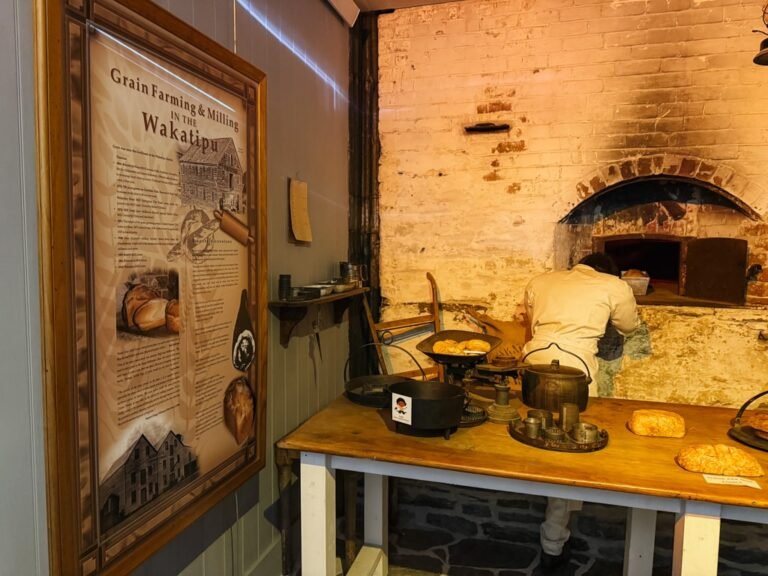This article may contain affiliate links. When you purchase something we recommend, we make a small commission. You don’t pay anything extra. 💘 For more details, check out our Terms of Use page.
I love reading and usually manage around 20 to 30 books a year, even though I’ve slowed down significantly recently. Having a Kindle definitely helps on the road, or I’ll use my phone if I must.
While I love a good fantasy novel or some historical fiction, I’ve found myself increasingly drawn to nonfiction books about history, geography, or geopolitics the more I travel. Understanding the context of where I am and what plays out there helps immensely. I get curious about the stuff that happens behind the scenes in places I sometimes end up picking on a whim.
With that in mind, here’s a list that will continue to grow, but for now features 40 plus books I personally recommend.
I don’t agree with the viewpoints of all of these books and neither should you. For a book to be worth reading it doesn’t have to support my philosophy on life and politics, but to offer a nuanced view that I can debate with. I hope you enjoy learning something new and let me know if there are more books that you love and want to see on this list.
Table of Contents
ToggleScience, Earth & Curiosities

A Short History of Nearly Everything by Bill Bryson
Huge scope, casual style. From atoms to astronomy, science made surprisingly digestible.

Sapiens: A Brief History of Humankind by Yuval Noah Hatari
Broad and questioning. Great for those into philosophy and anthropology.

A Brief History of Earth by Andrew H. Knoll
Straightforward and engaging timeline of Earth’s 4.6 billion years, from geology to the rise of life. Ideal for science-curious readers who want the big picture without the jargon.
United States

A People’s History of the United States by Howard Zinn
Tells U.S. history from the bottom up — workers, minorities, women. Eye-opening, often controversial, and challenges the textbook version of events.

Hillbilly Elegy by J.D. Vance
A memoir-meets-sociology about the white working class in Appalachia. Hugely popular and polarizing — either a vital perspective or too simplified, depending who you ask.

The Big Sort by Bill Bishop
Explains how Americans have self-segregated by values and geography — and how that impacts polarization. Feels even more relevant today.
Language & Culture
Europe

The Shortest History of Europe by John Hirst
A clear, fast-paced overview from the fall of Rome to the modern EU. Great starting point for understanding European identity and conflict.

The Shortest History of Greece by James Heneage
A quick read that ties ancient, medieval, and modern Greek history together. Good context for travelers or casual readers.

Say Nothing by Patrick Radden Keefe
A gripping, investigative read about the Troubles in Northern Ireland. Feels like a true crime book, but it’s all real.

Salonica, City of Ghosts by Mark Mazower
A deep dive into Thessaloniki’s layered past: Jewish, Muslim, Christian, Ottoman, and Greek. Essential for understanding Balkan complexity.

Greece: Biography of a Modern Nation by Roderick Beaton
A thorough but readable look at Greece’s modern development post-independence. Strong on identity, culture, and politics. One of the books I gift the most to people visiting Greece.

The Global Minotaur by Yanis Varoufakis
Uses Greek mythology to explain how global capitalism became unstable. Quirky but smart, especially post-2008 crash.

How to Be Danish by Patrick Kingsley
A compact, engaging look at modern Danish life, values, and culture. Especially useful for cultural comparison.

Lagom: The Swedish Secret of Living Well by Lola Åkerström
A gentle lifestyle read on balance and minimalism in Swedish culture. Light and easy.

Sixty Million Frenchmen Can’t Be Wrong by Jean-Benoît Nadeau & Julie Barlow
Cultural deep dive into France and why it feels so different. Smart, entertaining read.

Balkan Ghosts by Robert D. Kaplan
A travelogue and political history that dives into the tensions and traumas of the Balkans. Controversial but foundational.

The Balkans: Nationalism, War and the Great Powers, 1804–2011 by Misha Glenny
Comprehensive and engaging overview. Great for understanding the long roots of recent conflict.

Why the Dutch Are Different by Ben Coates
Written by a British expat, this book mixes history, travel, and social analysis to explain the Dutch mindset — water, bikes, directness, and all. Accessible and entertaining.

Ghosts of Spain: Travels Through a Country’s Hidden Past by Giles Tremlett
A gripping look at how modern Spain still wrestles with its Civil War, dictatorship, and divisions. Deeply reported and great for understanding more than flamenco and fiestas.
World War II

If This Is a Man by Primo Levi
A firsthand account of surviving Auschwitz. Literary and deeply human — essential reading.

Ordinary Men by Christopher R. Browning
Chilling, focused look at how average people became killers during the Holocaust. Short and unforgettable.

The Rise and Fall of the Third Reich by William L. Shirer
Monumental but readable history from a journalist who lived in Nazi Germany. A classic for a reason.
Economics & Systems
Geopolitics & Global Strategy

Prisoners of Geography by Tim Marshall
A sharp, map-driven explanation of how mountains, rivers, and borders shape global politics. Great for beginners to geopolitics. This is a book I come back to a lot when I visit regions of the world.

Prisoners of Geography by Tim Marshall
Follow-up to Prisoners, focusing on 10 key regions shaping the world’s future. Straightforward and full of current relevance.

The New Map by Daniel Yergin
A detailed but readable look at how energy (oil, gas, renewables) shapes modern power struggles between the U.S., China, Russia, and the Middle East. Great for understanding today’s global chessboard.

The Age of the Strongman by Gideon Rachman
Profiles the rise of authoritarian leaders like Putin, Xi, and Trump, and how they reshape global politics. Sharp analysis, ideal for readers following current affairs.

Guns, German and Steel by Jared Diamond
Explains how geography and environment—not intelligence or culture—shaped the global balance of power. Dense but foundational.

Move: Where People Are Going for a Better Future by Parag Khanna
Explores how climate change, aging populations, and political instability will drive massive global migration in the coming decades. Fast-paced, big-picture thinking with a futurist lens.

The Future is Asian by Parag Khanna
Challenges Western-centered views of power and influence by showing how Asia is reshaping the 21st century.

World Order by Henry Kissinger
A big-picture view from one of the most controversial figures in global strategy. Thoughtful and historical, but heavier in tone.

The Clash of Civilizations and the Remaking of World Order by Samuel P. Huntington
A widely debated and controversial classic that argues the post–Cold War world will be defined by cultural and civilizational clashes. Whether you agree or not, it’s a must-read for understanding global tension narratives.




